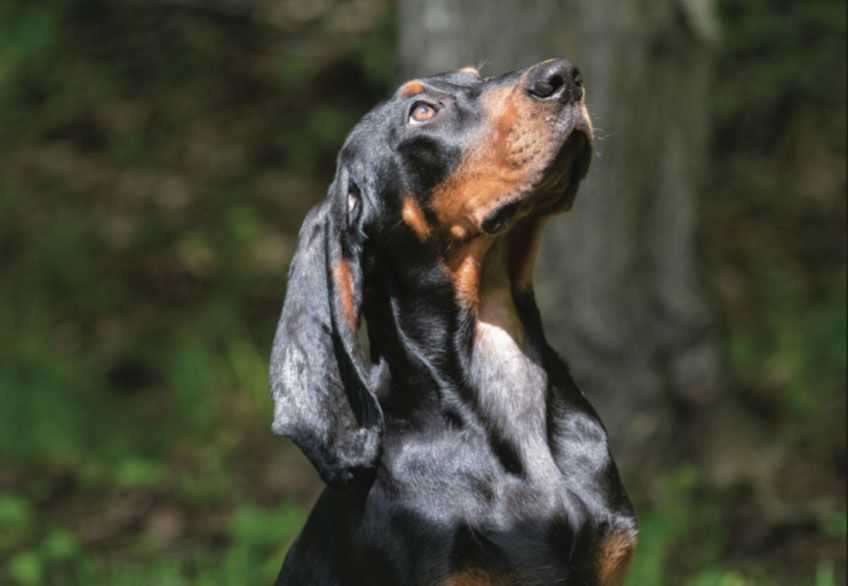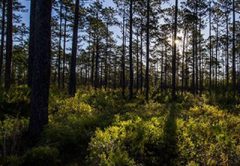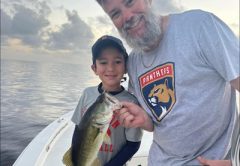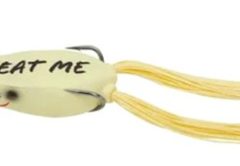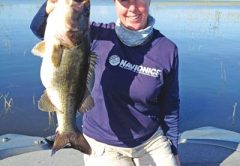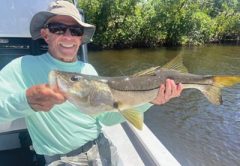Some of my huntin’ buddies and I really live for being out in a wet patch of woods in the middle of a cool night and hearing the not-so-distant sounds of our coon hounds when they open up on a hot trail. There’s just something about those hounds’ voices that sounds both pleasing and eerie at the same time.
YOU CAN SURE TELL THE DIFFERENCE WHEN THE DOGS ARE JUST TRAILING A COON VERSUS WHEN THEY’VE GOT ONE TREED.
We like to brag about whose actually struck the trail first and whose got to the right tree first. And boy, you can sure tell the difference when the dogs are just trailing a coon versus when they’ve got one treed. Their barking goes from longer, less frequent howls to just downright choppin’ it down, baying as loud as they can, as quick as the can, with every breath that’s in’em. You can really sense the urgency that’s in their voices when they’re sittin’ to the tree.
That’s when it’s time to turn on the flashlights and start making your way through the swamps toward that pleasant, oh-too-familiar sound in the darkness.
LICENSE AND PERMIT NEEDS
If you’d like to try coon huntin’, besides having a good coon dog, you’ll need a Florida hunting license. Residents pay just $17.00 for the year. Non-residents have the choice of paying $46.50 for a 10-day license or $151.50 for 12 months.
If you’re thinking about hunting one of Florida’s many Wildlife Management Areas (WMA), you also must purchase a management area permit for $26.50. But find out which WMAs allow coon huntin’ by reading the brochure on each area you’re thinking about trying. These WMA brochures are at your local tax collector’s office or online at MyFWC.com/Hunting.
All licenses and permits are available at the county tax collectors’ offices, any retail outlet that sells hunting and fishing supplies, online at GoOutdoorsFlorida.com or by calling toll-free, 888-HUNT-FLORIDA.
COON HUNTING REGULATIONS
Coon huntin’ with dogs at night, while using a flashlight or headlamp, is allowed. On private property, with the landowner permission, you may hunt raccoon year-round, but most of us prefer to hunt ‘em during the colder months so as not to get our dogs bitten by a snake or alligator.
You’re only allowed to harvest raccoons and opossums using a.22- caliber firearm (other than .22 –magnums) or single-shot .410-guage shotgun with shot no larger than No. 6 load. During the hunt, all firearms must remain unloaded except immediately prior to shooting treed or bayed raccoons or opossums.
There are no daily or seasonal bag limits on how many raccoons or opossums you may harvest, and hides and shins of these furbearers may be possessed in any number, at any time.
All dogs used in pursuing raccoons or opossums are required to wear collars or tags that identify dog owners and their addresses. Hunting either furbearer by ‘shining’ or using lights from moving vehicles, boats, or animals is against the law. It’s also illegal to transport wild-trapped live raccoons within, into or from Florida.
TRAPPING REGULATIONS
Individuals with a trapping license ($26.50) also may take raccoons and opossums by means of live-trapping or the use of snares, but these traps must be checked at least every 24 hours. Using steel or leg-hold traps is prohibited.
Only those people with a trapping license are authorized to sell the hides and meat of these furbearers. To buy and sell this meat for commercial purposes, you’re required to possess a dealer’s license, which you can get from the Florida Department of Agriculture and Consumer Services’ Division of Food Safety by calling 850-488-0295. So, if you’re looking for a new and exciting huntin’ opportunity, get ahold of a good coon dog, grab your .22, a flashlight and a pair of hip waders and take to the swamps! Here’s wishing you a happy New Year and good huntin’. If you can, introduce someone new to a different kind of hunting – pass the tradition down. As always, have fun, hunt safely and ethically, and we’ll see you in the woods!

